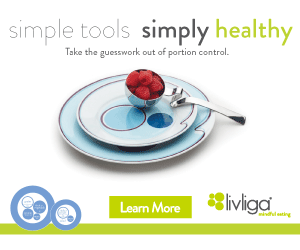I thought this article was worth sharing. Real Food wins again! Read on to learn why:
Consider this the next time you eat a salad: A little bit of fat in your dressing could be more useful for unlocking the nutritional potential of your veggies
Good news, dieters: Now you can really let
loose and opt for salad dressings with a little more fat (in small
amounts), as a new study finds that those kinds of dressings help you
absorb the good stuff in those greens.
Why is using a fat-free dressing bad?
Dieters often turn to fat-free dressings because they're lower in calories, but in this new study, led by Purdue associate professor of food science Mario Feruzzi, a little bit of fat helped the body absorb carotenoids, a healthy group of phytochemicals naturally found in vegetables. These phytochemicals act as important anti-oxidants in the body and help stifle the harmful effects of free radicals, which have been linked to everything from cancer and cardiovascular disease to immune-system dysfunction and macular degeneration.
How did they test for this?
Feruzzi and his team enlisted 29 volunteers and fed them salads topped with dressings made from three different types of fat: a saturated fat (butter), a monounsaturated fat (canola oil), and a polyunsaturated fat (corn oil). These dressings were tested in three different quantities: 3, 8, and 20 grams. Afterward, researchers tested each volunteer for the amount of phytochemicals their bodies had absorbed.
So which kind of fat is the best for dressings?
Dressings made with monounsaturated fat — which is also abundant in foods like nuts and avocados, and in olive oil — helped the body absorb the highest amount of carotenoids. Better yet: The subjects didn't absorb much more of the carotenoids when they used 20 grams of a dressing, so for people looking to cut calories while getting the most nutritional bang for your buck, a few grams of monounsaturated fat could be the sweet spot. "If you're looking for a reason to quit buying those less-than-tasty fat-free salad dressings," says Beth Fontenot at The Atlantic, "this could be it."
Sources: The Atlantic, FitSugar, Gizmodo












No comments